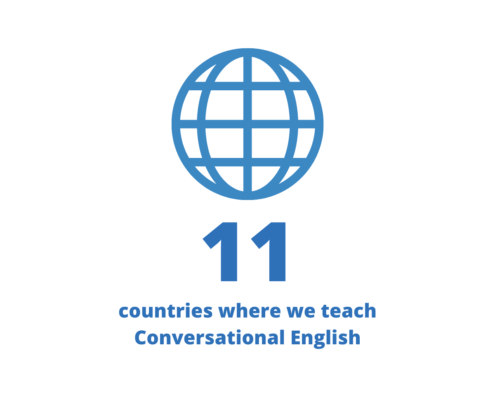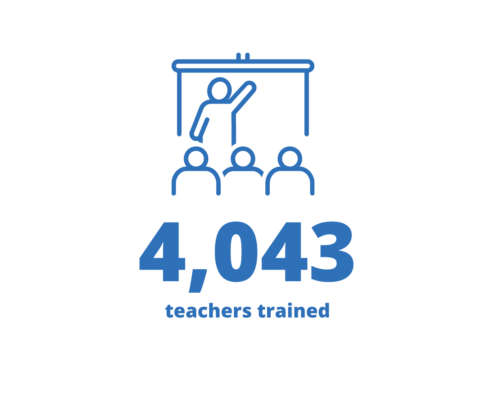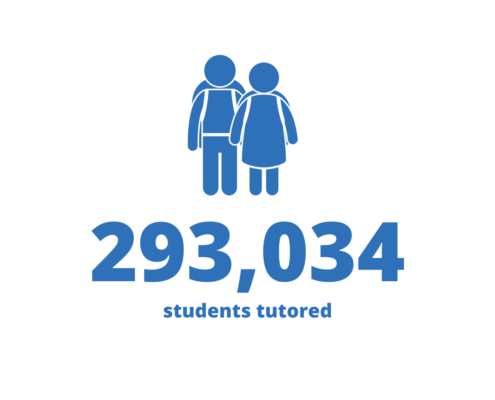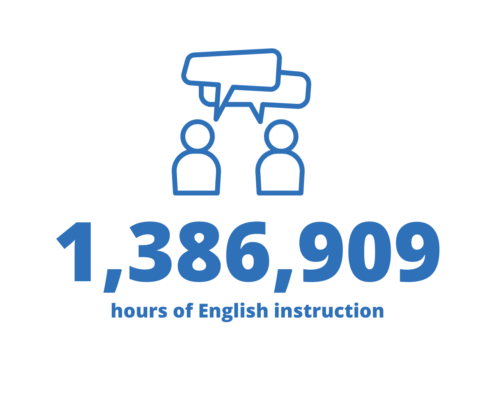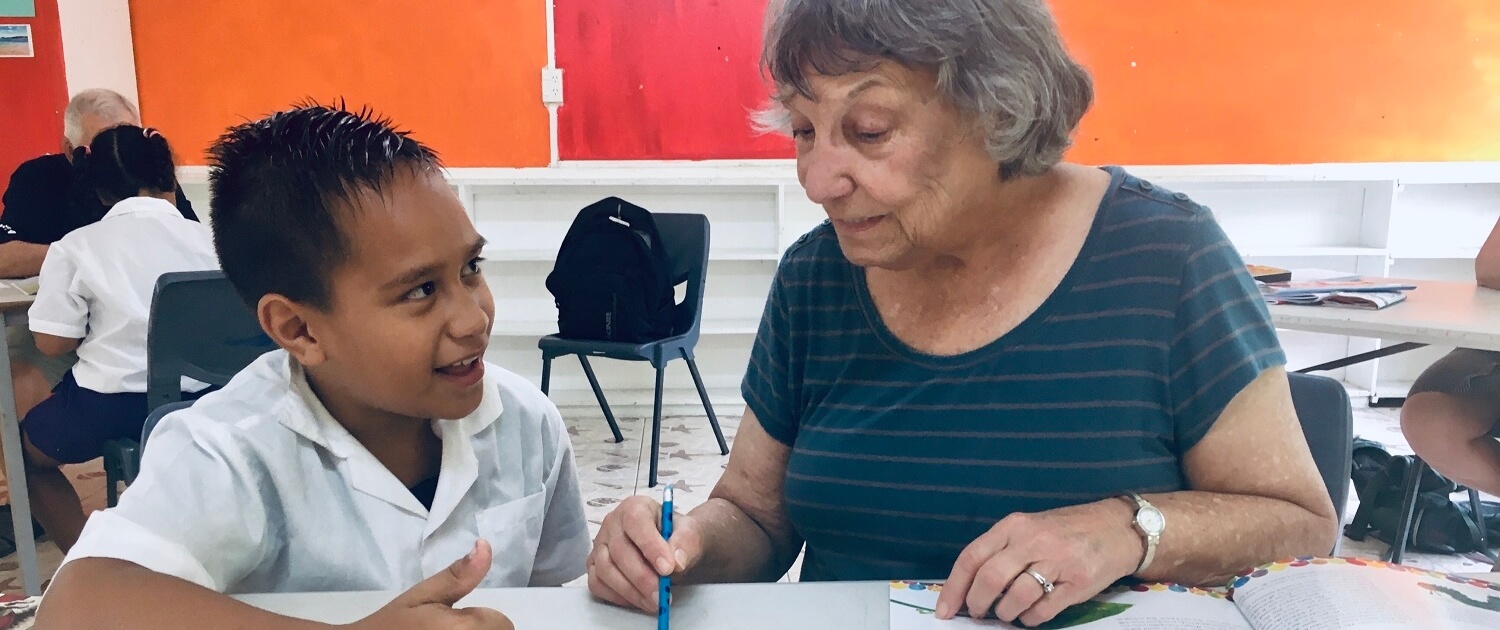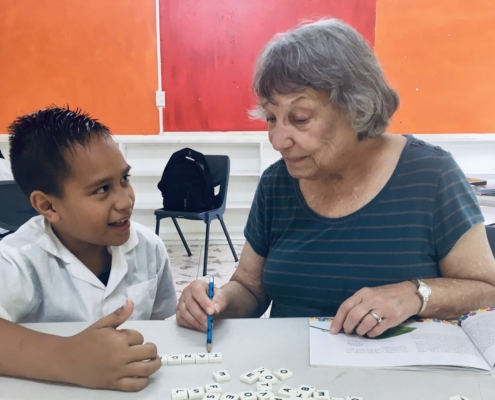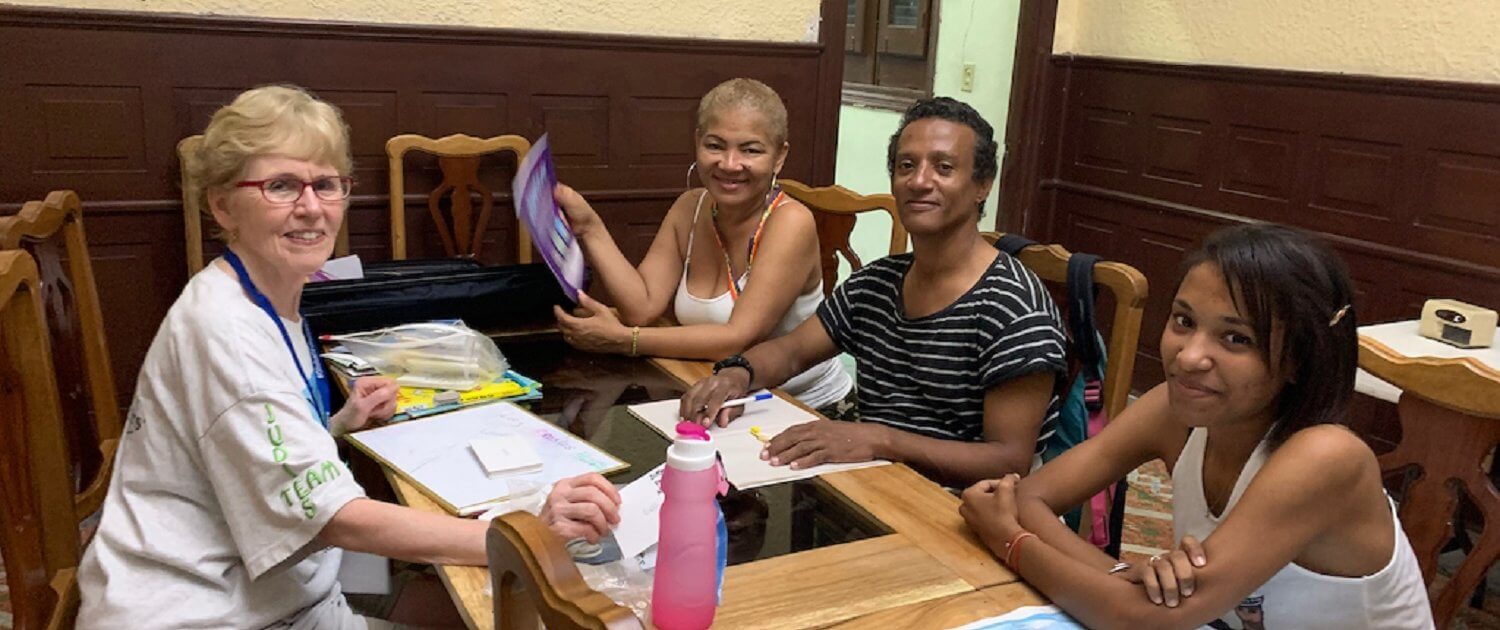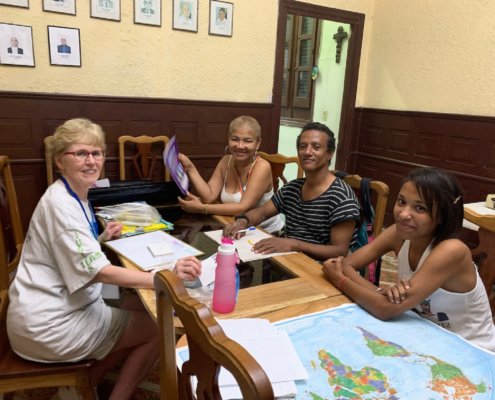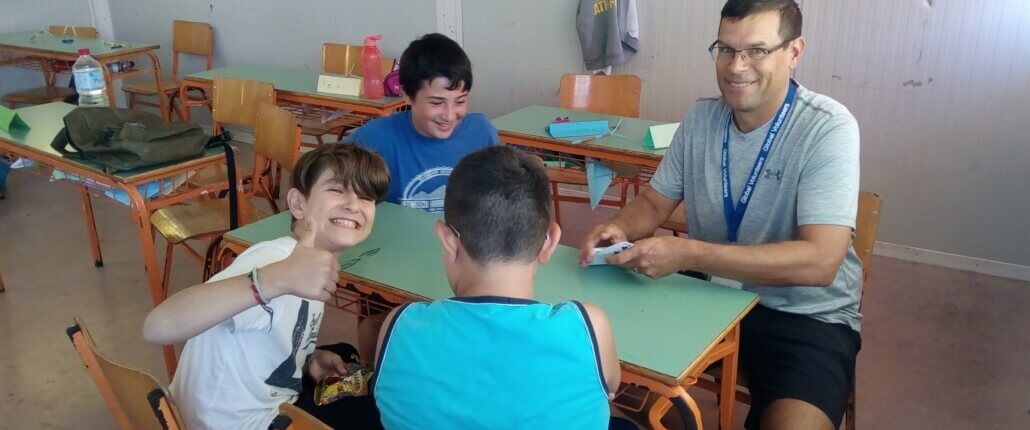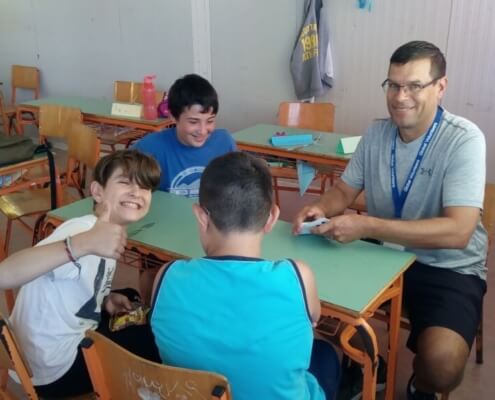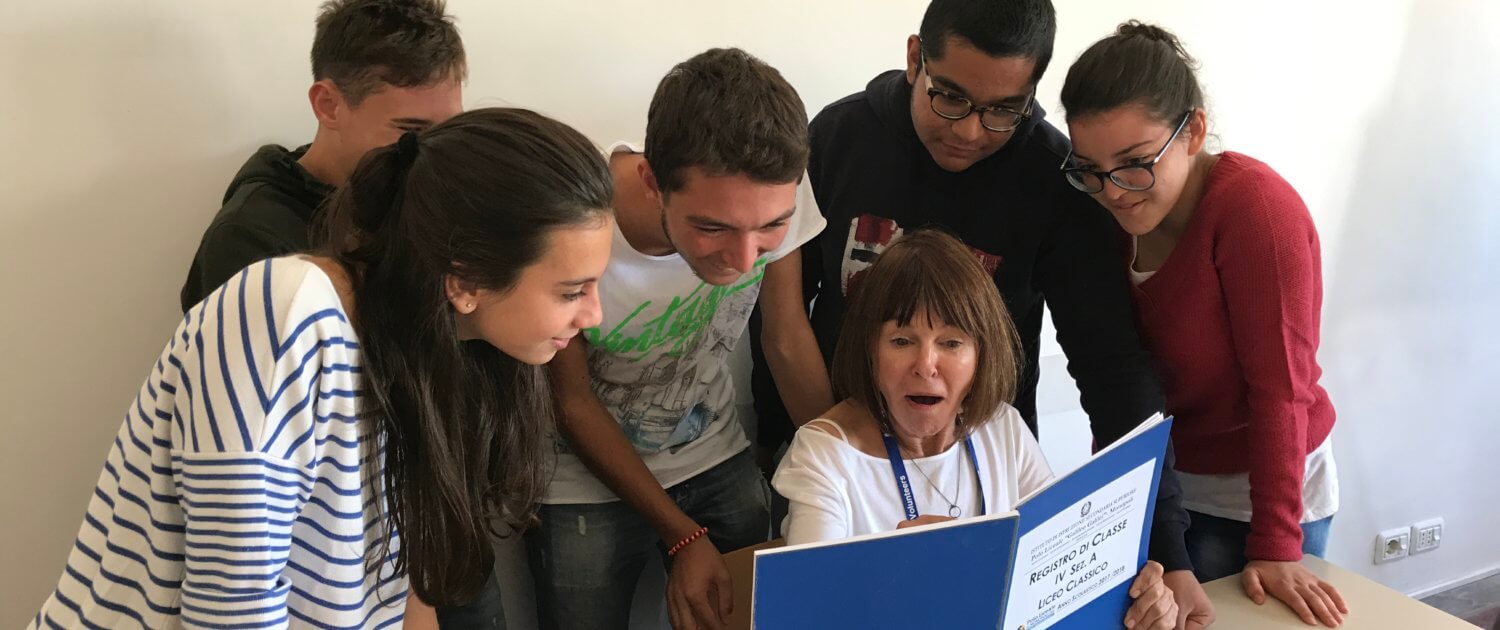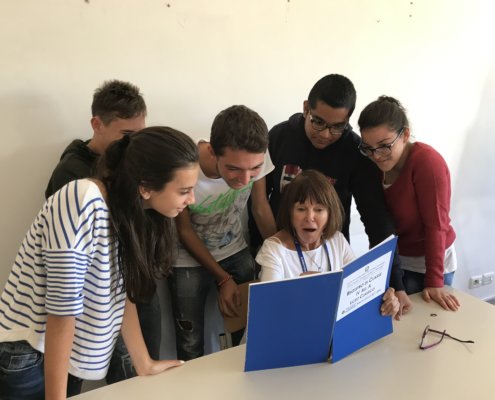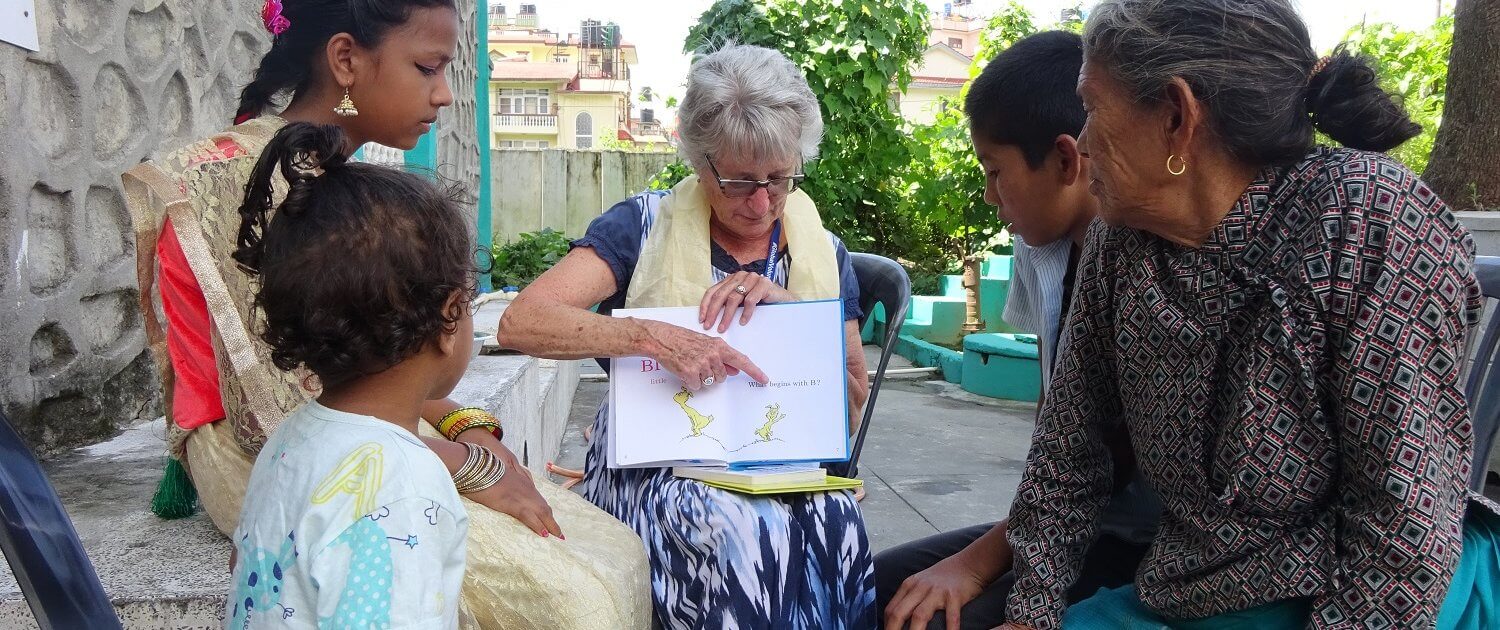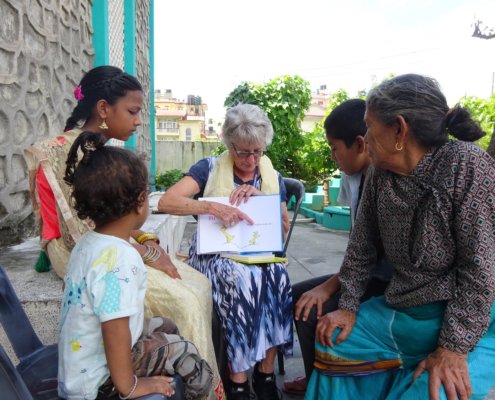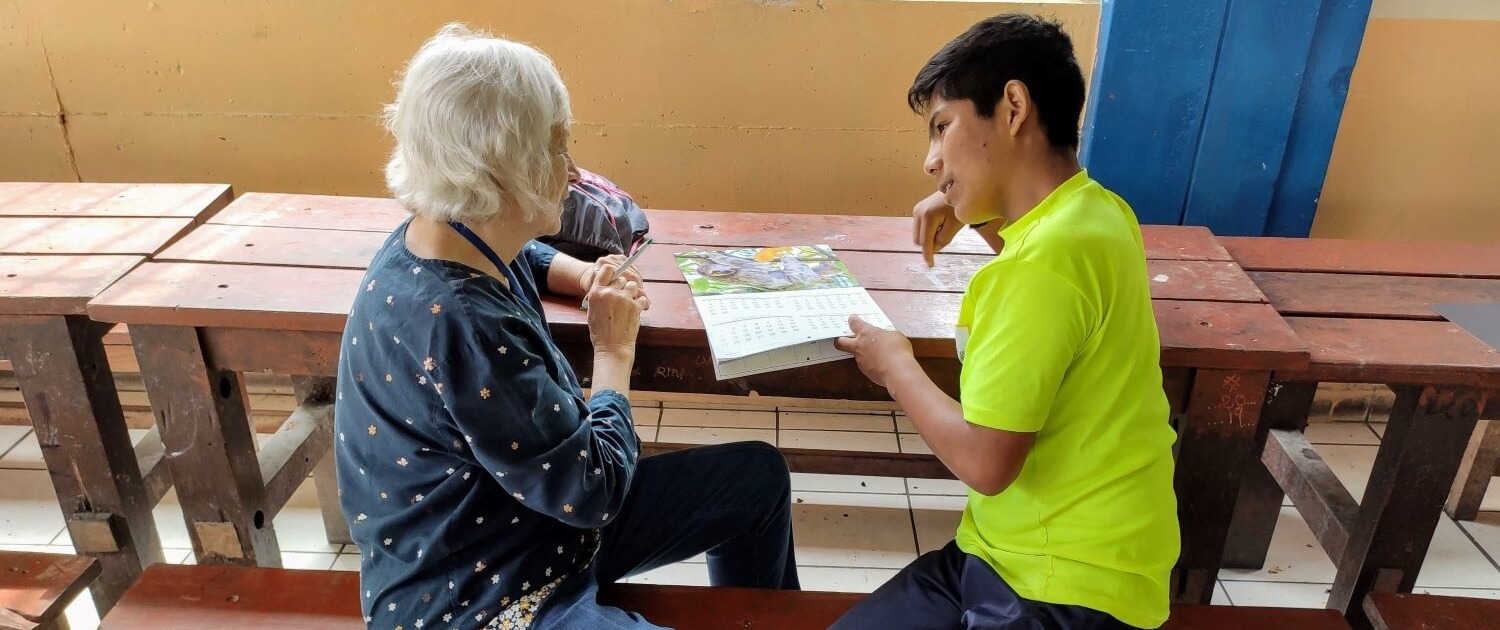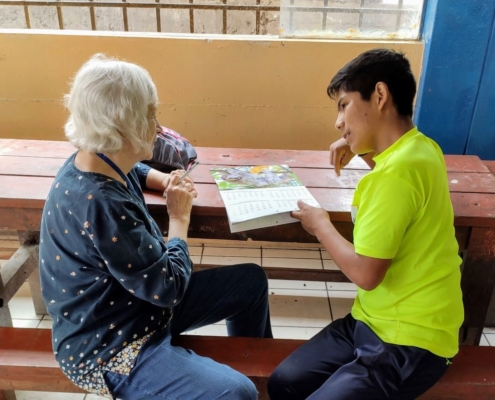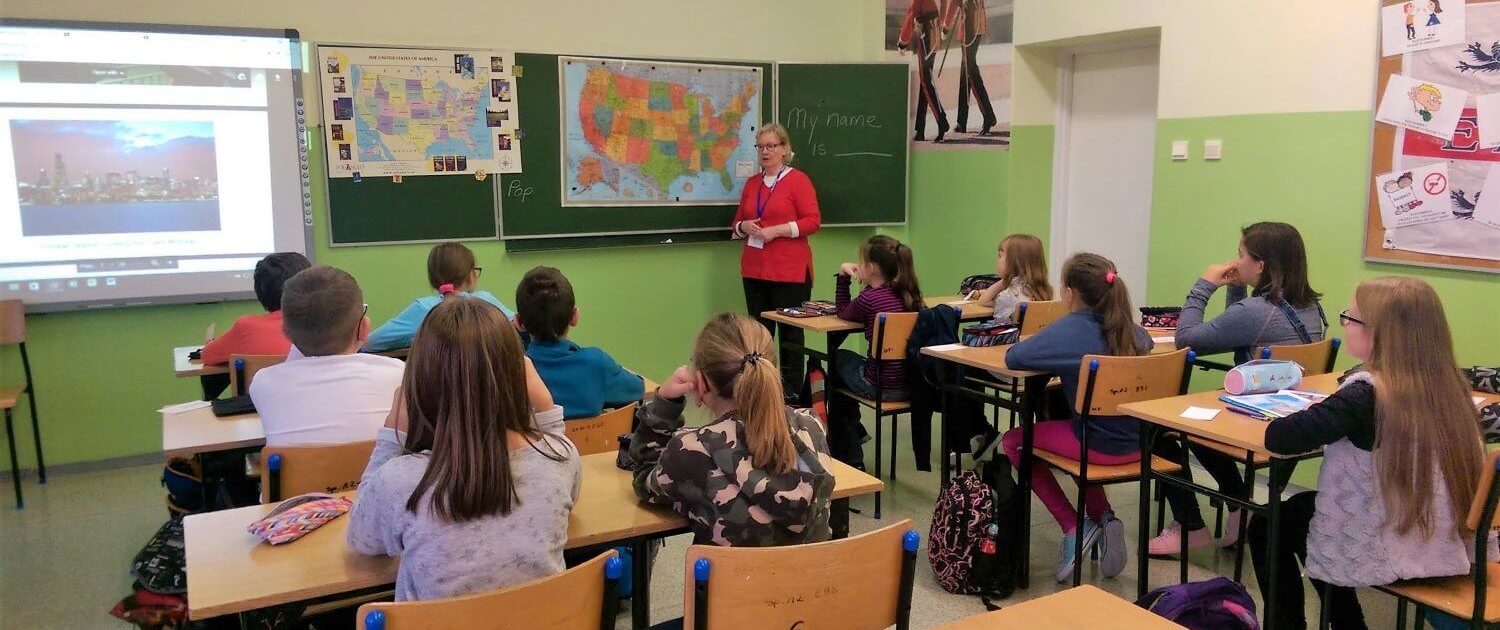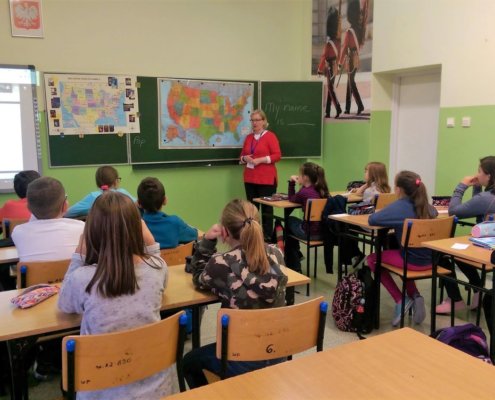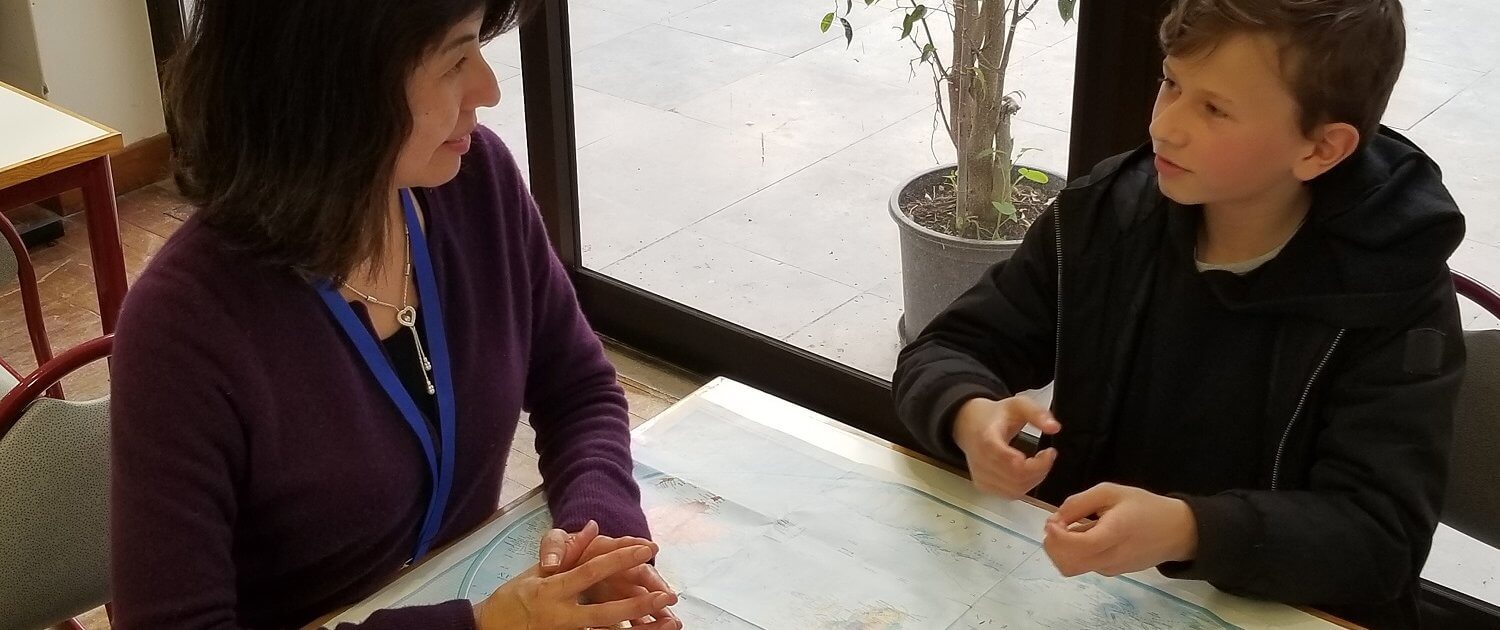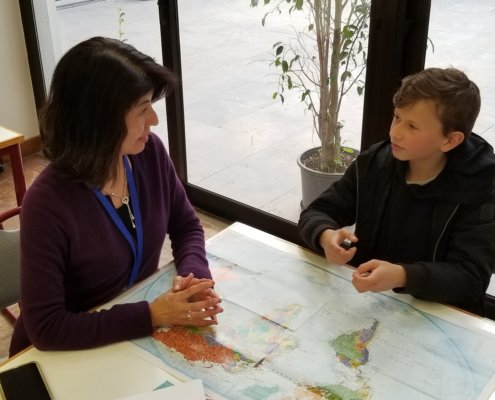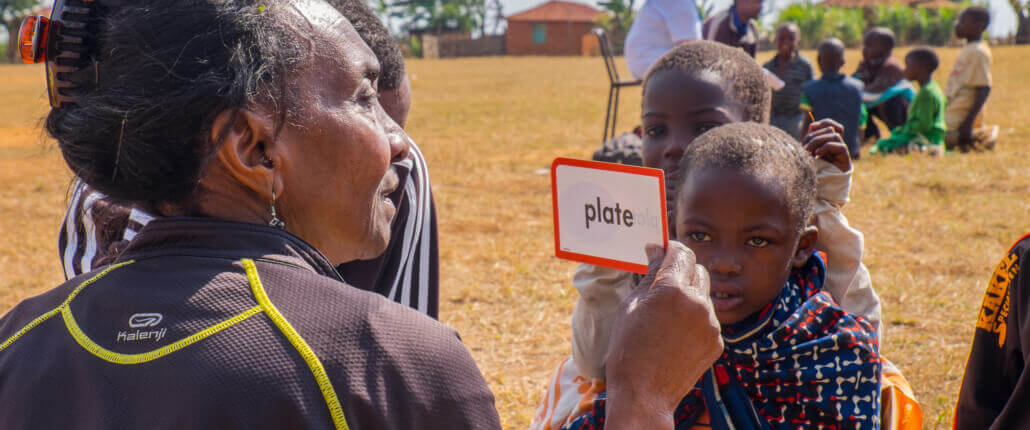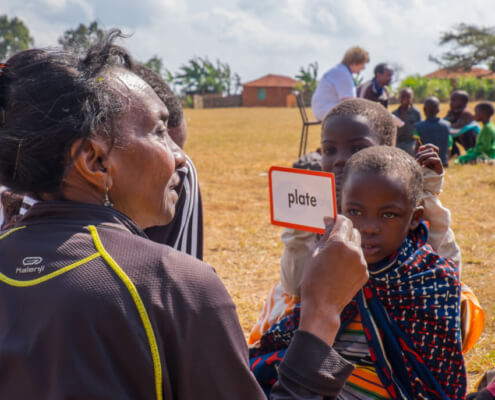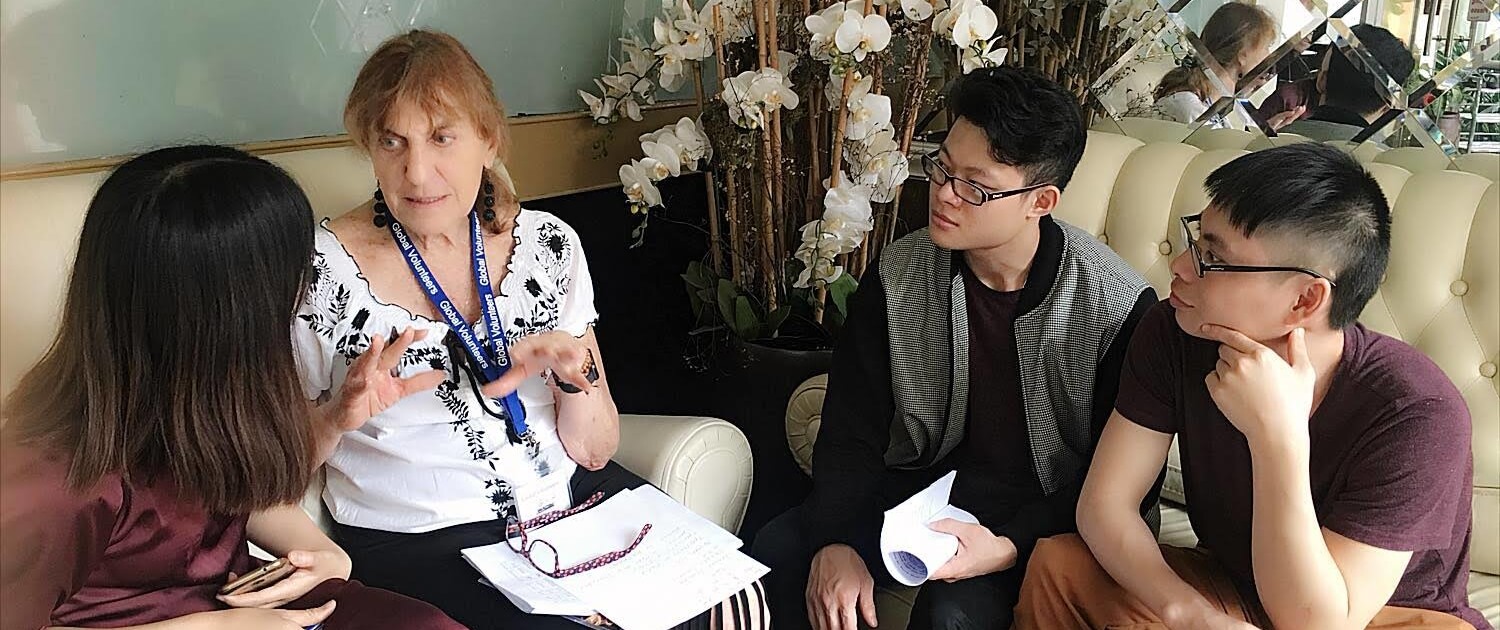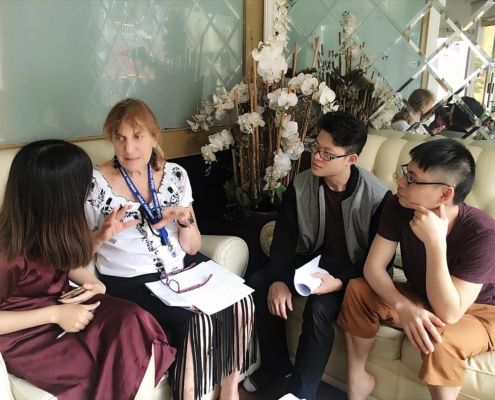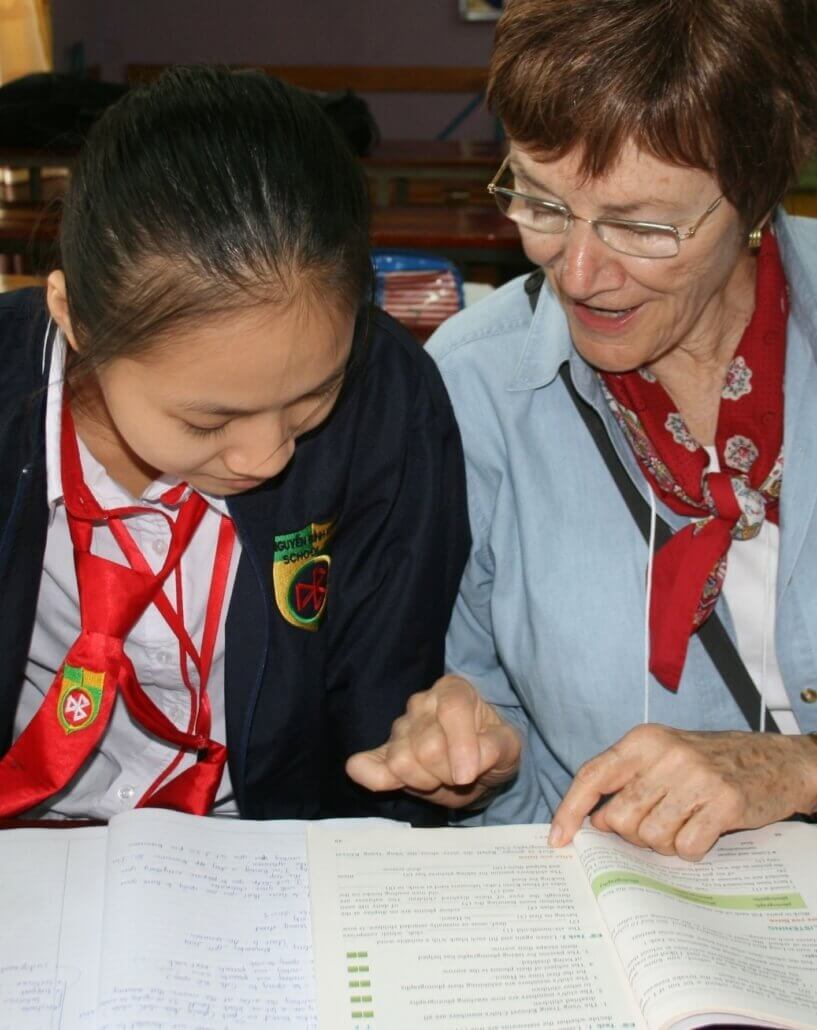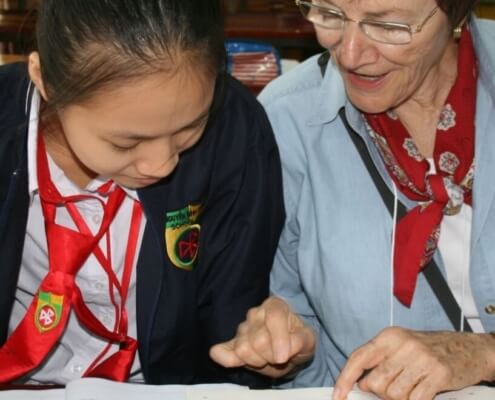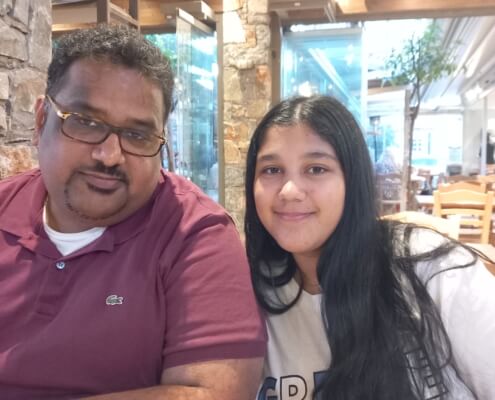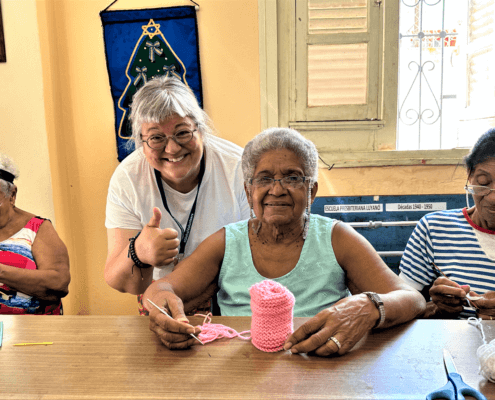Around the world, English is the language of commerce, technology and opportunity.
In developing countries, English can be a passport out of poverty, but most youth have no access to English language instruction. You can be a valuable resource in classrooms, small groups or offices to teach conversational English to children and adults. No formal teaching experience is required. We provide you our proprietary teaching guide including fun, interactive lesson plans, cultural adaptations, and suggested songs and games appropriate for all learning levels. Each setting presents different opportunities and joys. While adult students who value English in professional settings may pursue business English, youth are always fun-loving, and are motivated by new approaches and physical learning. Here’s how you help:
- Use texts, music, stories and your own creativity to make the English lessons your own!
- Teach alongside local English teachers, or team teach with other volunteers.
- Lessons might be English idioms for advanced students – or common phrases for new learners.
- Choose summer language camps, traditional classroom instruction or one-on-one tutoring.
- Plan lessons around shopping excursions, field trips, musical events or community cultural activities.






